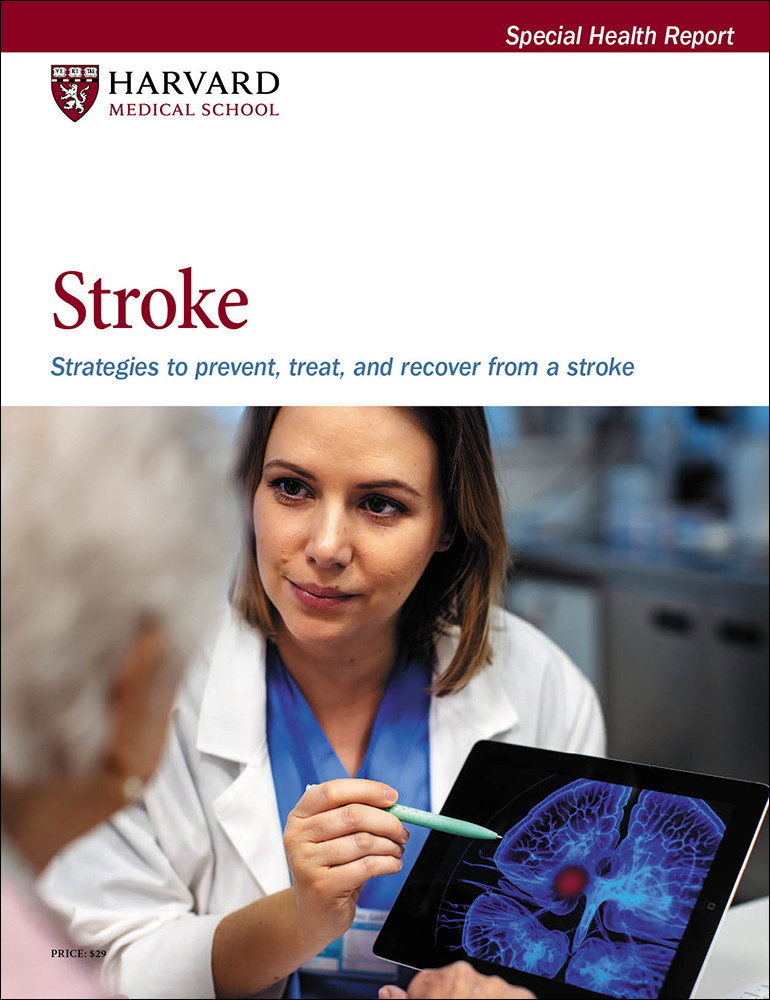Stroke: Diagnosing, treating, and recovering from a "brain attack"

Get the lifesaving secrets for preventing a stroke or living well after one
Stroke is a feared medical problem because it can be debilitating or even deadly. Your best defense is to make sure you know how to prevent a stroke and how to recognize one so you can get treatment right away.
In Stroke, Harvard Medical School experts distill the latest research and recommendations into understandable advice that can help you prevent or cope with a stroke.
Harvard Medical School’s Stroke report reveals:
- The risk factors that increase your chances of having a stroke
- Why stroke symptoms can differ from person to person
- The reason “mini-strokes” can be just as serious as ischemic strokes
- The app you should have on your cell phone that shows how to detect a stroke
- The type of therapist you may not know about who can help you regain speech after a stroke
- And so much more!
Don’t ignore stroke symptoms — even if they disappear!
If you have a transient ischemic attack, also called a TIA or mini-stroke, you may experience stroke symptoms that disappear. However, TIAs are no less dangerous than ischemic strokes — they have the same causes, which, if not treated, often lead to a full-blown stroke. As many as 20% of people who have a TIA will suffer a full-blown ischemic stroke within 90 days. The greatest risk is actually in the first week, which is why it’s so important to seek medical help promptly. Just because symptoms disappear does not mean the danger is over. In fact, a TIA should be considered a warning sign of an impending stroke and treated just as seriously.
For more information on Stroke, order your copy of the report today!
